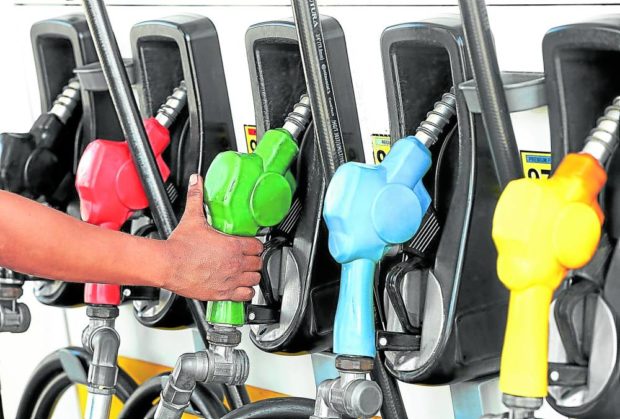Salceda suggests reducing, rather than suspending, fuel excise taxes

INQUIRER FILE PHOTO
MANILA, Philippines — Albay 2nd District Rep. Joey Salceda is not keen on adopting a proposal to suspend excise taxes on fuel, but he suggests reducing them instead.
“Let us exhaust all measures before we touch our taxes — which is the lifeblood of the state,” Salceda said in a statement on Tuesday,
Salceda, chair of the House Committee on Ways and Means which tackles tax-related bills — said that he had submitted to Speaker Ferdinand Martin Romualdez a different formula, first proposed in the 18th Congress, that would just reduce excise tax on fuel.
The proposal involves the following:
- Reduce the excise tax by P3 when the average Means of Platts Singapore price exceeds $80 for three months.
- Increase the excise tax by P2 when the price is below $45.
“The additional revenues during periods of low prices can be used for fuel subsidies when prices are high,” Salceda said. “The leadership is studying this approach. A highly volatile and socially sensitive commodity should not have such an inflexible tax regime.”
Article continues after this advertisementSalceda also forwarded to reporters a copy of the proposal he sent to Romualdez, calling for the provision of fuel discounts for the transport, farm, and fisheries sectors.
Article continues after this advertisementSalceda noted, however, that Congress would have to coordinate first with the Commission on Elections for an exemption on the provision of discounts due to the ban brought by the barangay elections this October.
Salceda also pointed out that outright cash aids might push inflation rates up because spending would increase — and drive supplies down.
“A Pantawid Pasada Program for some 180,000 jeepneys — for 30 liters a day — would amount to P5,040 per driver to cushion the expected rise in oil prices from [the] date of writing to [the] end of the year. The total program cost would be P907 million,” he said.
“A Pantawid Magsasaka program would require P2,800 per hectare — 400 liters per hectare — to cover the cost of fuel increases. For the current season, the cost of the program will be P3.36 billion. A typical fisherman will consume 60 liters from date to the rest of the year, or P420. A Pantawid Program for fisherfolk will cost a total of P924 million,” he added.
Salceda also suggested the reduction of the bioethanol additive requirement on fuel, as the price of bioethanol hovers around P84 per liter.
Currently, the Biofuels Act of 2006 requires a 10 percent bioethanol component on fuel products. Reducing this to 5 percent, Salceda said, would result in a P1.03-per-liter price decrease — and eventually a P3.05-per-liter savings due to ethanol being less volatile than pure gasoline.
“The relaxation could also improve [the] domestic supply of sugar, which is the commodity with the highest inflation rate in the Food Sector of the CPI [consumer price index],” Salceda said.
Salceda made his statements after he, Romualdez, and other ranking House members met with oil companies on Monday to discuss possible steps to take to address high oil prices.
The price of diesel fuel went up again on Tuesday, by P2.50 per liter, making it the 11th consecutive week its cost went up again. Gasoline and kerosene prices increased by P2 per liter.
With this, the price of gasoline at several pump stations went near P70 per liter, while the diesel price may range from P70 to P75 per liter.
After the meeting, ACT-CIS party-list Rep. Erwin Tulfo said that the House leadership seems to be leaning towards suspending excise taxes — a kind of tax placed on fuel by the Tax Reform for Acceleration and Inclusion Law (TRAIN), as an additional funding source for the past administration’s infrastructure program.
However, several lawmakers have been calling for a suspension or a repeal of the law, as they believe it gave an additional burden to motorists, commuters, and transport operators and drivers.
Marikina 2nd District Rep. Stella Quimbo asked — as Salceda also suggested — that proposals to cut excise taxes be studied carefully as it would mean lost revenues for the government.
She also said the slower-than-predicted gross domestic product growth for the second quarter of 2023 should be considered.